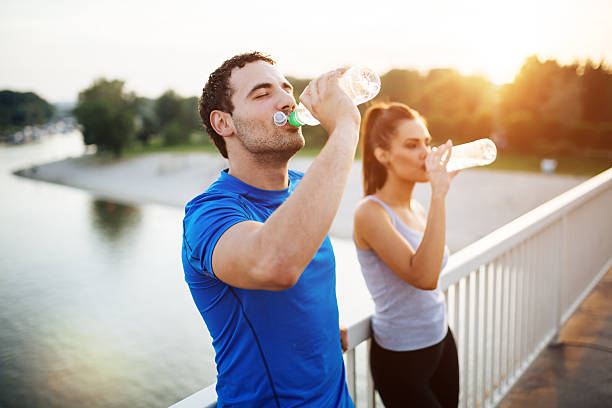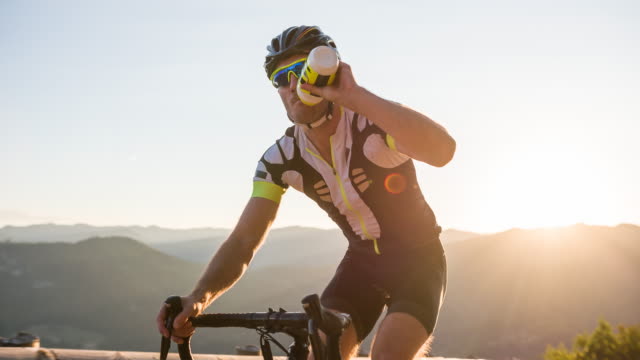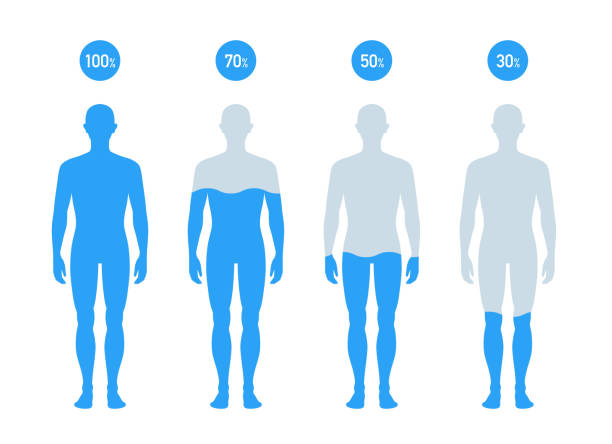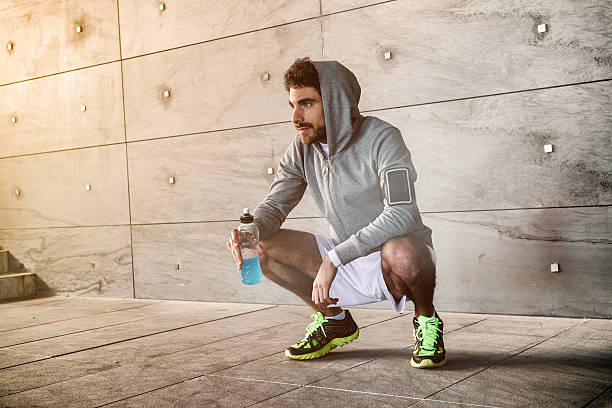Water or Sports Drinks? Hydration Myths Debunked
Are you fond of watching sports? Then you might have noticed that most athletes sip on brightly colored drinks before, during, and after competitions.
For your information, these sports beverages are a vital element of global athletics and business.
While most people believe these drinks are a prerequisite to exceptional sports performance, others posit that athletes should stick to water and avoid falling trap into marketing gimmicks.
As a fitness enthusiast, you might be torn between hydrating on pure water or other sports drinks.
Despite your progress in the fitness journey, this article will guide you on the best way to hydrate for optimal sports performance and fitness.
Without much ado, let’s dive in.

What is Hydration and Why Does it Matter?
Simply put, hydration is the body’s ability to maintain a balance of fluids. This balance is essential for optimal health and performance, especially for fitness enthusiasts, gym goers, and athletes.
The top benefits of hydration include the following:
Body Temperature Regulation
When you exercise or engage in physical activity, your body produces heat.
If you become dehydrated, your body’s ability to regulate temperature decreases, which can lead to overheating and even heat stroke.
Nutrients and Oxygen Transportation
When you are dehydrated, your blood volume decreases, leading to decreased oxygen transport to your muscles and organs.
Dehydration can result in decreased performance and fatigue during exercise.
Toxins and Waste Removal
Hydration helps flush toxins and waste products from the body, which can help prevent muscle soreness and improve recovery time.
Joint Lubrication
Hydration lubricates joints, which can reduce the risk of injury during exercise.
These benefits underscore the value of hydration. But what is the best way to stay hydrated as a fitness enthusiast?

The Downsides of Dehydration
Dehydration occurs when your body loses more fluids than it takes in. This can happen when you don’t drink enough water or lose a lot of fluids through sweating during intense workouts. As a result, your body doesn’t have enough fluids to function properly.
When you’re dehydrated, your body tries to conserve fluids by reducing the amount of urine you produce. And this can lead to other problems like kidney stones, urinary tract infections, and constipation.
As an athlete or gym goer, dehydration can prevent you from achieving your fitness and performance goals. Your muscles may not work as well, leading to decreased performance and increased risk of injury. Dehydration can also make you feel more tired and irritable, making it harder to stay motivated to work out.
Some common signs of dehydration include dry mouth, thirst, dark urine, fatigue, and dizziness. When you are dehydrated, you may not be able to perform at your best, which can be frustrating.
It is worth noting that athletes are particularly vulnerable to dehydration. When you’re competing at a high level, even a small drop in fluid levels can negatively impact your performance. Dehydration can cause cramping, fatigue, and decreased endurance, all of which can make it more difficult to win. In extreme cases, dehydration can even lead to heat exhaustion or heatstroke, which can be life-threatening.
In addition to its negative effects on physical performance, dehydration can also have negative effects on mental health. When you’re dehydrated, you may feel more anxious or depressed. This can be particularly problematic for athletes who need to be mentally focused to perform optimally.

Water Vs Sports Drinks: Tips to Hydrate like a Professional Athlete
Water is the main component of the human body and is vital for proper body functioning. While playing its role, water leaves the body through feces, sweat, urine, and exhaled air. This continuous loss of water necessitates regular hydration.
Water is also the main ingredient in sports drinks. Other ingredients include electrolytes and carbs like fructose, sucrose, and glucose.
Usually, sports drinks contain 6-8% carbohydrates. This implies that a 6% sports drink has about 14 grams of carbohydrates. Conversely, some sports drinks are either low- or zero-carb, catering to people seeking water with electrolytes but no extra calories.
Electrolytes, also dubbed minerals, have an electrical charge. The highly priced electrolytes in sports drinks include potassium and sodium. Despite the presence of numerous companies, the difference in their products is dismal.
The Benefits of Sports Drinks
Sports drink ingredients are vital to various aspects of exercise and athletic performance.
Sports drinks improve short-duration exercise. A report on a study conducted on trained cyclists revealed that sports drinks improve performance by 2% compared to a placebo.
Anecdotal evidence shows that sports drinks improve intermittent exercise and team sports like football, soccer, and basketball. As observed, taking carb-rich sports drinks combats fatigue and boosts performance in sports.
Sports drinks have also been proven beneficial to prolonged continuous exercise. Numerous studies examining the impact of carb-rich sports drinks on exercises spanning between 1 and 4 hours show a spike in performance. In parallel, participants in team sports are likely to benefit most from sports drinks.
The benefits of sports drinks stem from the fact that they provide carbohydrates for energy and balance electrolytes in the body while preventing dehydration.
How Many Carbs?
Normally, the duration of exercise/fitness training dictates the amount of carbs you need.
Research shows that small amounts of carbohydrates (less than 30 grams per hour) might improve athletic performance in activities lasting between 30 and 75 minutes.
Advisably, you should take about 30 grams of carbohydrates for 1-2-hour-long sessions. But sessions lasting longer than 2 hours will demand more carbs.

The Bottom Line
As a fitness aficionado, you should prioritize hydration.
There is no one-size-fits-all approach to hydration. The amount of water you should drink daily depends on various factors, including your body weight, activity level, and climate. Overall, you should drink at least eight glasses of water daily, and more if you exercise or sweat heavily.
When exercising, drink water before, during, and after your workout.
In addition to drinking water, consider adding electrolytes to your hydration routine. Electrolytes are minerals that help to regulate fluid balance in the body. You can find electrolyte supplements at most health food stores or make your own by adding a pinch of sea salt to your water.
You should also avoid caffeine and alcohol, which can dehydrate you even further.
If you plan to work out for an extended period, drink a sports drink containing electrolytes to help replace the fluids and minerals lost through sweating.
In case you experience any of the aforementioned symptoms of dehydration, take a break and rehydrate. By staying hydrated, you can be sure to perform at your best both physically and mentally.
Looking to build muscle and endurance without breaking the bank? Don’t look any further.
Subscribe to Kloud Iron’s 28-day fitness program and begin your journey toward optimal mental health and physical fitness.
To learn more about Kloud Iron Fitness Hub’s offers, contact us today or message/follow us on Facebook and Instagram. We are also available on YouTube.


1 Comment
binance
2 months agoCan you be more specific about the content of your article? After reading it, I still have some doubts. Hope you can help me.